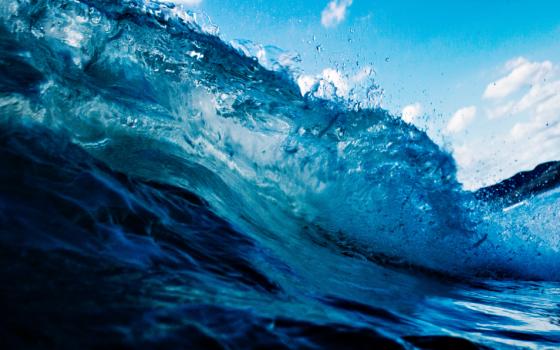What you can do to make the world a better place has long been a favorite topic of this blog, regardless of politics and elections.
And like many people, I am suffering from news overload these days. So apropos of nothing, Simran Jeet Singh has a column at OnFaith on how to reach out to Muslim neighbors who maybe fearful in the current climate.
What Singh is offering is a sample letter you can write with a simple message: We see how Muslims are being treated, and we don't like it.
"Please remember that you have allies here — people who truly and sincerely care about your well-being," the letter says. "As your allies, we promise to do everything that we can to stand up for your rights and to ensure that you are treated with the dignity and respect that you deserve."
Could you write your own letter? Of course. But it's often easy — even for writers — to be at a loss for words. So even if Singh's sample letter does nothing but motivate you to go and say hello, that may open important doors that in too many cases are slammed shut.
A new way to create drinkable water
Jesuit News last week tweeted about a senior at Jesuit High School in Portland, Oregon, who had done well, to say the least, in a recent science fair. In fact, Chaitanya Karamchedu may have solved a problem that plagues millions of people around the world.
KPTV has the story of how Karamchedu found a cost-effective way to desalinate water. About 70 percent of Earth's surface is covered with water, but the vast majority of it is undrinkable because it is saltwater. The salt can be removed, but it is expensive and requires huge amounts of electricity.
But Karamchedu realized that only 10 percent of saltwater actually has salt molecules bonded to the water molecules. So while most desalination methods focus on breaking the bond between the two, Karamchedu instead focused on finding a way to separate the 90 percent of water molecules without salt attached.
What he found was a highly absorbent polymer that, instead of bonding to water molecules, bonds to the salt, leaving the water molecules without salt attached free to be used for drinking.
KTPV says Karamchedu won $10,000 at Intel's International Science Fair and also won money to continue his research at MIT's TechCon Conference, where he took second place.
Karamchedu's biology teacher, Lara Shamieh, said that if implemented on a mass scale, his idea could improve the lives of millions of people.
"What this is compared to current techniques, is that it's cheap and accessible to everyone, everyone can use it," Shamieh said.
Remember, links, tips and accounts of the response to any crisis anywhere in the world are always welcome at dstockman@ncronline.org.
[Dan Stockman is national correspondent for Global Sisters Report. Follow him on Twitter or on Facebook.]


